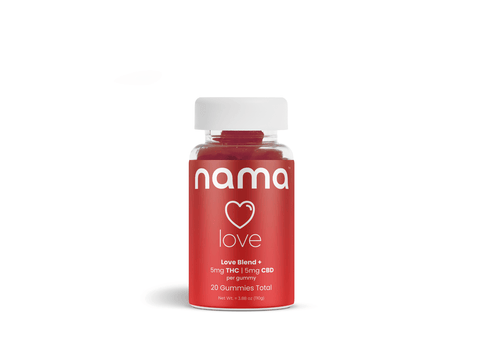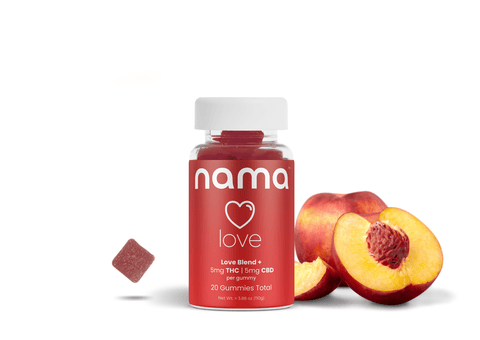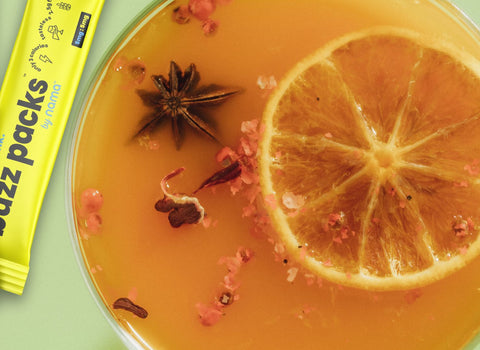Your alcohol tolerance will decrease when you embrace the soberish lifestyle. This reset transforms occasional drinking experiences, and you might find that one drink feels like three.
Most people notice changes within just 2–3 weeks of reducing alcohol consumption. Genetic differences influence how fast this reset happens, but everyone's alcohol tolerance diminishes when they take breaks from alcohol.

Our THC drinks revolutionize the soberish experience by delivering the social buzz you want without alcohol's downsides. They pack precise microdoses of THC and CBD that create that perfect wine-like relaxation while keeping you hangover-free and sharp the next morning.
Does your alcohol tolerance go down if you stop drinking?
Your body rebuilds alcohol sensitivity when you take a break from drinking. This biological reset transforms the drinking experience for people adopting the soberish lifestyle. Alcohol tolerance decreases in everyone who reduces consumption, from occasional social drinkers to those with alcohol use disorders. Your body loses its tolerance because the specialized enzymes that process alcohol decrease in production, which makes you more sensitive to alcohol's effects.
Miller, et. al. explain that people who drink less display significantly more impairment from the same dose of alcohol compared to regular drinkers, which explains why even a single drink hits harder after a break.
The liver is your primary alcohol-processing organ. It reverts to its natural state during alcohol-free periods. Without constant exposure, liver enzymes decrease the production of alcohol dehydrogenase, the compound responsible for breaking down ethanol. This sensitivity reset delivers real perks when you're soberish: you get more bang for your buck from each drink, consume less alcohol overall, and can better feel when it's time to stop.
Your body's built-in warning system makes mindful drinking easier when you're living soberish, helping you avoid overdoing it and keeping health risks at bay.
If you're embracing the soberish lifestyle but still crave a gentle evening buzz, try our Buzz Drops™. These soberish drops let you enjoy social relaxation without rebuilding your alcohol tolerance or facing morning-after regrets. Your liver will thank you.
How quickly does alcohol tolerance decrease?
Alcohol tolerance drops as quickly as 3–7 days after you stop drinking. During the first two weeks without alcohol, your tolerance drops by about 50% if you're a social drinker. Your body weight, metabolism, and genes shape your personal reset timeline, and many people notice changes after just a few dry days.
According to a 2011 study, heavy drinkers need more time to reset their tolerance than occasional drinkers, though they follow the same biological pattern. Taking a full month off alcohol creates dramatic changes in tolerance, regardless of previous drinking patterns.
Those who choose the soberish lifestyle often feel intoxicated from much smaller amounts when they occasionally drink, which is a sign their systems have returned to a pre-tolerance state.
Maintain your soberish wins while still unwinding after work with our Buzz Packs™. These THC drink mixes deliver consistent, controlled relaxation without rebuilding tolerance or causing next-day regrets. Add one or two powder packs (serving 5 to 10 mg of THC) to any non-alcoholic beverage and enjoy the benefits of your alcohol-free choice.
How to safely drink when soberish
When you've gone soberish, occasional drinking requires a strategic approach. Your lower tolerance means previous drinking patterns can be dangerous.
Here's how to navigate occasional drinking safely:
- Start with just one standard drink and wait 30–45 minutes to gauge its effects.
- Choose lower-alcohol options, like light beer or wine spritzers.
- Measure drinks precisely instead of free-pouring to prevent over-serving.
- Alternate each alcoholic drink with a full glass of water.
- Eat food before and during drinking sessions.
- Plan drinking occasions in advance rather than making impulsive decisions.
- Set a firm drink limit before you begin.
- Track your consumption with a notes app or journal.
- Tell friends about your soberish goals to reduce social pressure.
- Leave events early if you feel tempted to drink more than planned.
We have just the right thing to support your soberish lifestyle and replace some drinking occasions.
Product QUIZ
Need help deciding what product is best for you? Take our quiz, just three questions until your perfect match!
The best nama drinks for the soberish lifestyle
Going soberish transforms your relationship with alcohol and enhances your quality of life. While cutting back on alcohol, many people still want something to unwind with after work or during social occasions. Our cannabis beverages fill this gap nicely, offering a buzz without the health risks of alcohol.
Buzz Drops deliver 2.5 mg THC and 2.5 mg CBD per dropper and create a gentle, wine-like relaxation without affecting liver function. The microdosed formula maintains mental clarity while boosting emotional stability. Add to your favorite beverage for a customizable, calorie-free experience that won't disturb your sleep.
Our powder stick packs provide the same 5 mg of THC and CBD in convenient powder form. These water-soluble packets dissolve in any drink for easy, on-the-go use. The effects begin within 10–15 minutes, delivering a controlled, wine-like buzz without disrupting your soberish wins.
Both products support your healthier lifestyle choice with:
- Zero calories.
- No hangover or withdrawal symptoms.
- Improved cognitive function the next day.
- Better sleep than with alcohol.
- Third-party testing for purity.
Subscribe to monthly THC drinks delivery and save 15% on your soberish lifestyle without hassle. Our free shipping to 48 states means your THC alternatives arrive discreetly at your door.
Order from nama today.
Soberish alcohol alternative FAQ
An alcohol-free lifestyle can deliver measurable benefits. When you stop drinking, your physical health, mental clarity, and sleep quality improve within weeks. Many experience weight loss, lower blood pressure, and better insulin resistance.
The "soberish" approach works better for many people. This flexible path creates a healthier relationship with alcohol while allowing occasional drinks. The key lies in breaking habitual consumption patterns and establishing alcohol-free days in your daily routine. Most importantly, it adds flexibility to your social interactions without sacrificing the lifestyle many fear losing.
Alcohol does age your face. It dehydrates skin, causing premature wrinkles and loss of elasticity. The inflammatory effect creates facial redness, broken capillaries, and puffiness, especially around the eyes. Alcohol disrupts sleep cycles, leading to dark under-eye circles. It depletes vitamins essential for skin health and triggers hormone fluctuations that increase facial bloating.
Regular drinkers often develop a distinctive facial puffiness from fluid retention. These effects become more pronounced over time with continued heavy drinking. The good news is that most facial aging effects begin reversing within weeks of reducing alcohol consumption, and the first improvements become visible after a month-long break.
Early liver damage rarely shows obvious symptoms, which makes it dangerous. Warning signs include fatigue, abdominal pain (especially on your right side), unexplained weight loss, and yellowing skin or eyes (jaundice). Physical symptoms such as spider veins, easy bruising, or swollen legs can indicate advancing damage.
Blood tests measuring liver enzymes (AST, ALT, GGT) provide the earliest detection—elevated levels signal liver stress even before symptoms appear. A FibroScan test can measure liver stiffness non-invasively. If you drink regularly and experience any symptoms, consult a doctor immediately. Unlike tolerance changes, liver damage won't reverse within days, healing requires extended periods without alcohol.
Alcohol risks increase with age. Your body processes alcohol more slowly as you age, leading to higher blood alcohol levels from the same drinks you tolerated when younger. What felt like moderate drinking at 30 may feel terrible by 60.
Here are some age-related risks:
- Your liver processes each glass of wine more slowly.
- Blood pressure spikes more dramatically after drinking.
- Common medications create dangerous interactions.
- Balance problems increase the risk of falls.
- Memory and mental clarity suffer more significant impacts.
- Heart health faces greater strain from alcohol.
- Recovery takes longer after a night of drinking.
- Weight gain happens more easily from alcohol calories.
- Sleep quality deteriorates more severely.
- Regular drinking leads to dependence more quickly.
- Even moderate drinking can become problematic drinking.
True alcohol intolerance rarely disappears because it stems from genetic enzyme deficiencies. Unlike tolerance, which decreases with abstinence, intolerance involves immediate physical reactions like flushing, nausea, and headaches after minimal consumption. Certain forms can improve. Medication-induced reactions resolve when you stop the medication, and food-based reactions may diminish by avoiding specific ingredients rather than all alcohol.
Acquired intolerances sometimes develop after periods of heavy drinking when liver function declines, and these can improve somewhat as liver health recovers. New intolerance symptoms warrant medical attention as they sometimes signal underlying conditions like Hodgkin's lymphoma or autoimmune disorders.
Alcohol tolerance has significant genetic components. Studies of identical twins show consistent patterns of inherited tolerance levels. Ethnic variations in alcohol-processing enzymes create dramatic differences . According to research, about 40% of East Asians have genetic variations causing the "Asian flush" reaction. Children of alcoholics often display naturally higher tolerance levels before significant drinking exposure. These genetic factors affect initial sensitivity and how quickly tolerance develops with regular consumption.
Genetics only form part of the picture. Drinking patterns ultimately override genetic predispositions. Even those with genetic predispositions for high tolerance experience a tolerance reset during periods without alcohol.
Top Sellers
New? Start with our Ultimate Sampler!

THC: 10 mg | CBC: 10 mg | CBD: 10 mg | CBG: 5 mg | CBN 5mg
Resources
Miller MA, Hays LR, Fillmore MT. Lack of tolerance to the disinhibiting effects of alcohol in heavy drinkers. Psychopharmacology (Berl). 2012 Dec;224(4):511-8. doi: 10.1007/s00213-012-2786-x. Epub 2012 Jul 5. PMID: 22763668; PMCID: PMC3593342.
Miller MA, Hays LR, Fillmore MT. Lack of tolerance to the disinhibiting effects of alcohol in heavy drinkers. Psychopharmacology (Berl). 2012 Dec;224(4):511-8. doi: 10.1007/s00213-012-2786-x. Epub 2012 Jul 5. PMID: 22763668; PMCID: PMC3593342.
Fillmore MT, Weafer J. Acute tolerance to alcohol in at-risk binge drinkers. Psychol Addict Behav. 2012 Dec;26(4):693-702. doi: 10.1037/a0026110. Epub 2011 Oct 24. PMID: 22023021; PMCID: PMC3326440.
Heath AC, Bucholz KK, Madden PA, Dinwiddie SH, Slutske WS, Bierut LJ, Statham DJ, Dunne MP, Whitfield JB, Martin NG. Genetic and environmental contributions to alcohol dependence risk in a national twin sample: consistency of findings in women and men. Psychol Med. 1997 Nov;27(6):1381-96. doi: 10.1017/s0033291797005643. PMID: 9403910.
Yuki Matsumura, Katie M. Stiles, Jasmine Reid, Esther Z. Frenk, Samantha Cronin, Odelya E. Pagovich, Ronald G. Crystal, Gene Therapy Correction of Aldehyde Dehydrogenase 2 Deficiency, Molecular Therapy - Methods & Clinical Development, Volume 15, 2019, Pages 72-82, ISSN 2329-0501, https://doi.org/10.1016/j.omtm.2019.08.004.
Further reading
What’s the difference between Soberish drops and Buzz Drops?
Where to buy the best soberish alternatives to alcohol
How to make the best THC drinks
Why is going soberish becoming so popular?
Why does drinkable THC hit faster than gummies?
Legality of soberish cannabis beverages in the US
nama CBD FDA & legal disclaimer
Our products are not intended to diagnose, treat, cure, or prevent any disease. They are not a replacement for prescription medications and have not been evaluated by the U.S. Food and Drug Administration (FDA).
The information provided on this website does not and is not intended to constitute legal advice or any statement of the status of any laws. Any information, content, and materials available on this site are for general informational purposes only and are not intended to be relied upon for any purpose.
Readers of this website should contact their attorney to obtain advice with respect to any particular legal matter, including decisions on what products are, or are not, legal to sell, possess, or consume. No reader, user, or browser of this site should act or refrain from acting on the basis of the information on this site without first seeking legal advice from their own counsel in the relevant jurisdiction.
About
Learn
Join us on this journey

© Copyright 2026 nama Products LLC. All Rights Reserved.
†These statements have not been evaluated by the Food and Drug Administration. These products are not intended to diagnose, treat, cure or prevent any disease. All information presented here is not meant as a substitute for or alternative to information from health care practitioners. Please consult your health care professional about potential interactions or other possible complications before using any product.
††The information provided on this website does not, and is not intended to, constitute legal advice or any statements of the status of any laws. Any information, content, and materials available on this site are for general entertainment purposes only, and are not intended to be relied upon for any purpose.

By clicking ‘Yes,’ you agree to our
Terms & Conditions and Privacy Policy
123 John Doe Street
Your Town, YT 12345
Store Hours
Sun: Closed
Mon-Fri: 9:00 - 17:00
Sat: 10:00 - 13:00
What to expect at pickup
Closed
Closing at 5pm
Closing at 5pm
Closing at 5pm
Closing at 5pm
Closing at 5pm
Closing at 1pm

![Buzz Drops™ [THC Drink Drops]](http://www.namacbd.com/cdn/shop/files/nama_thc_buzz_drops.png?v=1711412866&width=480)
![Buzz Drops™ [THC Drink Drops]](http://www.namacbd.com/cdn/shop/files/buzz-drop-wine-comparison.png?v=1736882023&width=480)
![Buzz Packs™ [THC and CBD Powder Drink Mix]](http://www.namacbd.com/cdn/shop/files/nama_buzz_packs_thc_drink_pack_white_background.png?v=1769586244&width=480)
![Buzz Packs™ [THC and CBD Powder Drink Mix]](http://www.namacbd.com/cdn/shop/files/Buzz_Packs_Label.png?v=1769586244&width=480)














Comments (0)
There are no comments for this article. Be the first one to leave a message!